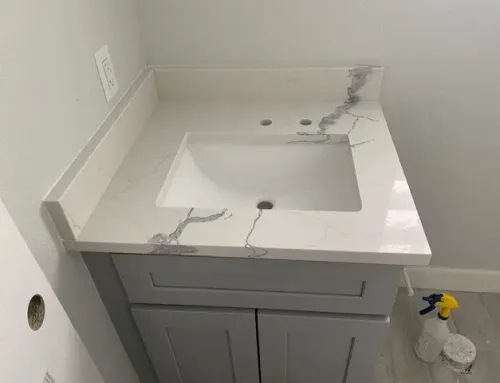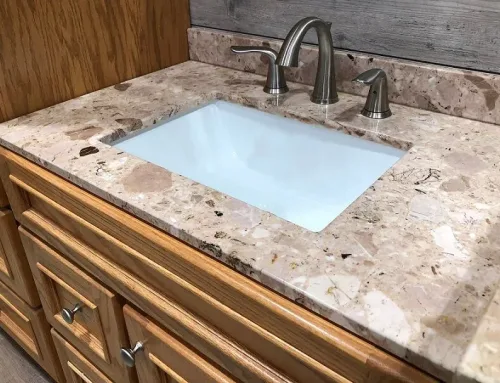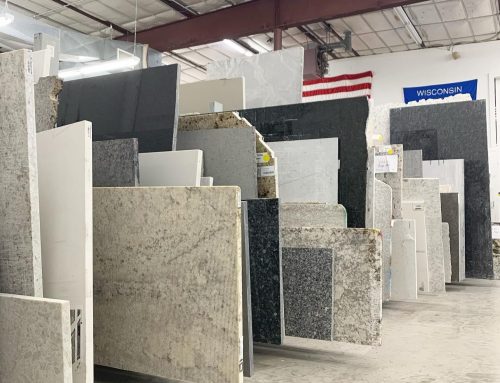If you’re considering new countertops for your kitchen or bathroom, you’ve probably come across the term “fabrication.” But what does it really mean? Fabrication is the process of turning a raw slab of stone, quartz, or another material into a finished countertop that fits perfectly in your space. It’s where functionality meets artistry, combining precision craftsmanship with design expertise to bring your vision to life.
The Fabrication Process
Fabrication involves several key steps, each critical to achieving a flawless final product:
- Material Selection
- The process starts with choosing the perfect slab. This step sets the tone for your project and highlights your choice—whether it’s the timeless elegance of marble, the durability of quartz, or the natural beauty of granite. Factors like color, veining, and thickness are important considerations.
- Measurement and Template Creation
- Accurate measurements are taken to ensure the countertop fits your space seamlessly. Fabricators often use digital templating technology to create a precise blueprint of your countertops. Also this accounts for sinks, appliances, and any unique architectural features.
- Cutting
- Once the template is finalized, the slab is cut to size using advanced tools like water jet or diamond blade saws. Precision is key here to ensure clean, accurate cuts that preserve the integrity of the material.
- Shaping and Edging
- The edges of your countertop are shaped and polished to match your desired style. Common edge profiles include straight, beveled, bullnose, and ogee. Each option adds a distinct aesthetic to the finished piece.
- Polishing and Finishing
- After shaping, craftsmen polish the countertop surface to achieve the desired finish, whether it’s a glossy sheen, a matte look, or a leathered texture. This step enhances the material’s natural beauty while providing a protective seal.
- Cutouts and Customization
- Any necessary cutouts for sinks, faucets, or cooktops are carefully made. This is also the stage where custom features like waterfall edges or integrated backsplashes can be added.
- Installation
- Once the fabrication process is complete, the countertop is ready for installation. Additionally professional installers will ensure it’s securely placed and level, with seams expertly joined and edges aligned.
Why Is Fabrication Important?
Additionally fabrication isn’t just about cutting stone; it’s about bringing out the best in the material while ensuring it functions perfectly in your home. A well-fabricated countertop:
- Fits precisely in your space, reducing gaps or misalignment.
- Highlights the material’s unique patterns and veining.
- Provides a durable, long-lasting surface that withstands daily use.
Choosing the Right Fabricator
When selecting a fabricator, look for professionals with experience, a solid reputation, and a commitment to quality. Ask to see samples of their work or visit their showroom to better understand their capabilities and craftsmanship.
Final Thoughts
Moreover fabrication is the art and science of transforming raw materials into beautiful, functional countertops that enhance your home. It’s a process that requires skill, precision, and attention to detail at every step. When you understand the process, you fully appreciate how craftsmen create your dream countertops.





